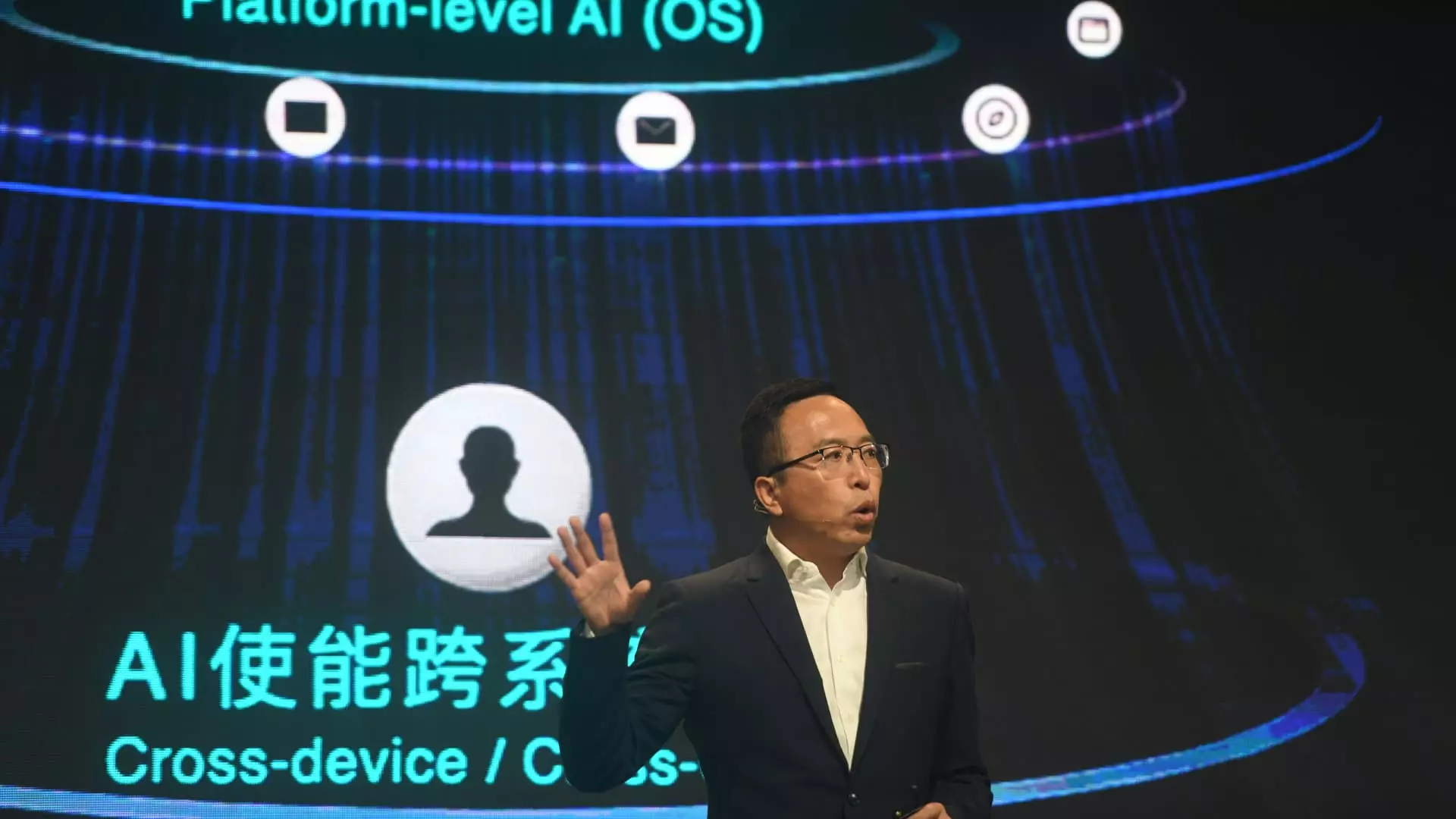In a rapidly transforming technological arena, Chinese smartphone manufacturers are taking significant steps in enhancing their devices through the integration of artificial intelligence (AI). This move not only represents a leap in innovation for local consumers but also serves as direct competition against established players like Apple. With the anticipated launch of Apple Intelligence on eligible devices — albeit excluding users in mainland China and the EU — it is evident that Apple is grappling with its market positioning as it steps into a highly competitive space dominated by aggressive Chinese tech companies.
Research from Canalys highlights that Apple has slipped out of the top five smartphone vendors in China earlier this year. This decline underscores the challenges Apple faces in maintaining its market share as other brands unleash innovative solutions bolstered by AI advancements tailored for local users.
Huawei’s Bold Moves with HarmonyOS
Amidst the challenges faced by Apple, Huawei is presenting formidable competition with its advancements in software and AI capabilities. After being severed from Google due to U.S. sanctions, Huawei launched its proprietary HarmonyOS in 2019. This operating system is now evolving into a robust platform that eliminates dependence on Android, allowing Huawei to innovate independently.
The latest display of HarmonyOS’s capabilities unveiled tools that empower users with functionalities like on-the-go text translation, quick note-taking, and photo editing, all fueled by in-house AI technologies. These developments are notable not only for their convenience but also for the strategic direction they signify for Huawei as a self-sustained entity in a politically charged environment. By focusing on proprietary systems, Huawei positions itself as a competitor that can operate independently of external influences, particularly those stemming from Western sanctions.
In tandem with Huawei’s strides, Honor, a subsidiary of Huawei, is aiming to redefine user experience through its upcoming Magic operating system. The emphasis on AI functionality will enable the phone to interpret vague commands and translate them into precise actions. For instance, a simple user expression like “I’m tired” can trigger the AI to place an order for coffee, showcasing the potential for seamless integration of tasks without the need for direct user engagement.
Honor’s strategic partnerships with local tech firms, such as Baidu, further enhance its AI capabilities, asserting the importance of collaboration within China’s technology ecosystem. These advancements reflect a paradigm shift wherein users can interact with devices intuitively, fostering a new way to navigate day-to-day functions through AI.
While Chinese firms such as Honor and Huawei are making waves in the market, Apple still enjoys a significant foothold within China, contributing to roughly 17% of its revenue. However, this figure is indicative of a decline from previous years, emphasizing the dynamics of consumer preferences shifting toward more AI-enhanced devices. Apple’s challenge lies in reestablishing its appeal among Chinese users, a task complicated by its recent struggles with the pricing of new devices such as the iPhone 16 Pro Max. The decreasing second-hand values of its flagship phone raise questions regarding its perceived value among consumers who are increasingly attracted to affordable yet feature-rich alternatives.
Despite these challenges, Apple is actively seeking to engage with Chinese government officials and stakeholders to address data security and develop cloud services, signaling a recognition of the unique regulatory landscape present within China. As Apple approaches its quarterly results on October 31, stakeholders will be keenly watching the implications of these initiatives on the company’s ability to retain its market presence and foster consumer loyalty.
The burgeoning trend of AI integration in smartphones represents a critical juncture in the technology sector. The latest offerings from Chinese manufacturers not only focus on enhanced hardware with the utilization of Qualcomm’s Snapdragon Elite 8 chip but also signal a commitment to fostering innovative software experiences. Toby Zhu, a senior analyst from Canalys, emphasizes that enhanced AI functionalities could potentially sway consumers towards alternative devices, further emphasizing the depth of competition Apple faces.
The smartphone landscape is increasingly dominated by AI capabilities, with Chinese companies leading the charge. Apple’s future in this fiercely competitive market remains uncertain. As the gaming field expands with the arrival of novel features and functionalities, consumers will be watching closely to see if Apple can adapt to these innovations and maintain a prominent position in this evolving sector. It remains to be seen whether Apple can reclaim its favor among users or if local competitors will solidify their stature through relentless innovation and consumer-focused functionalities.

Leave a Reply